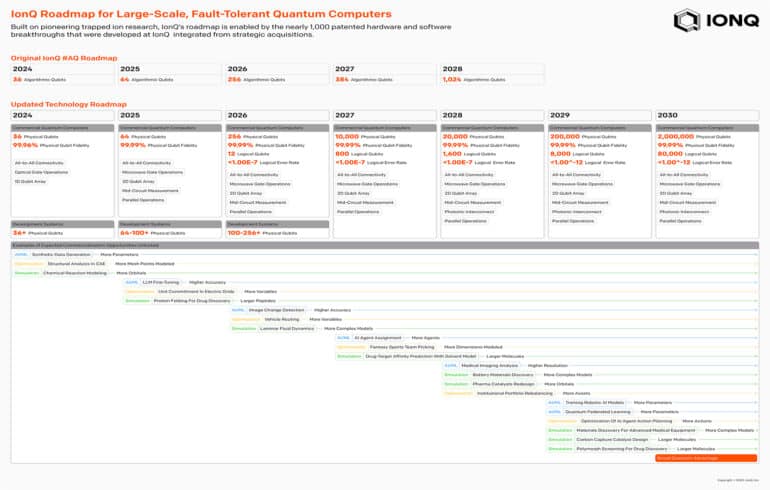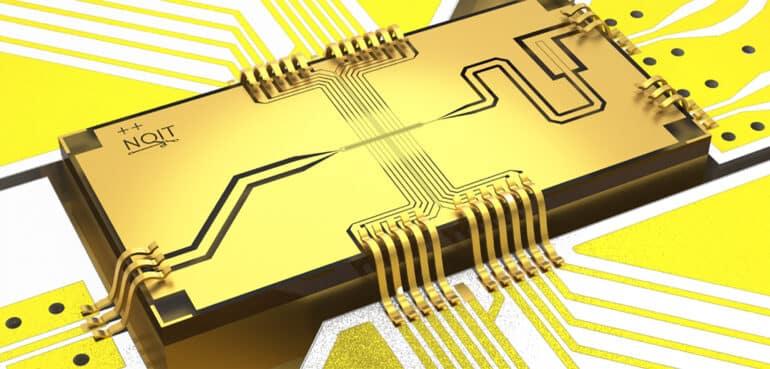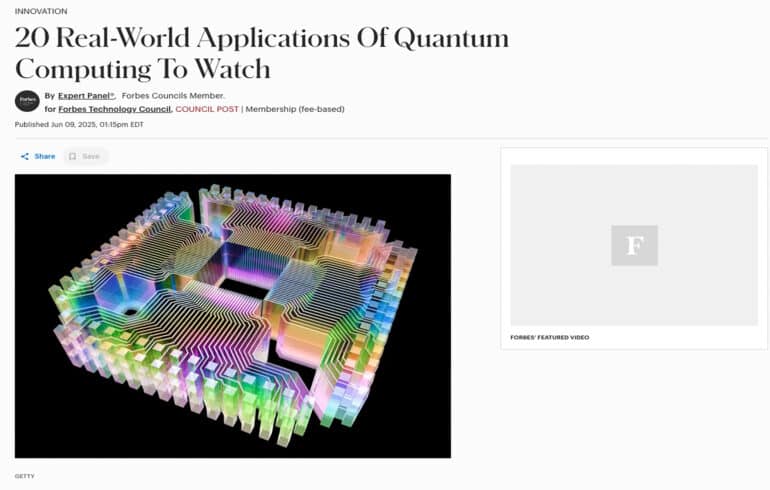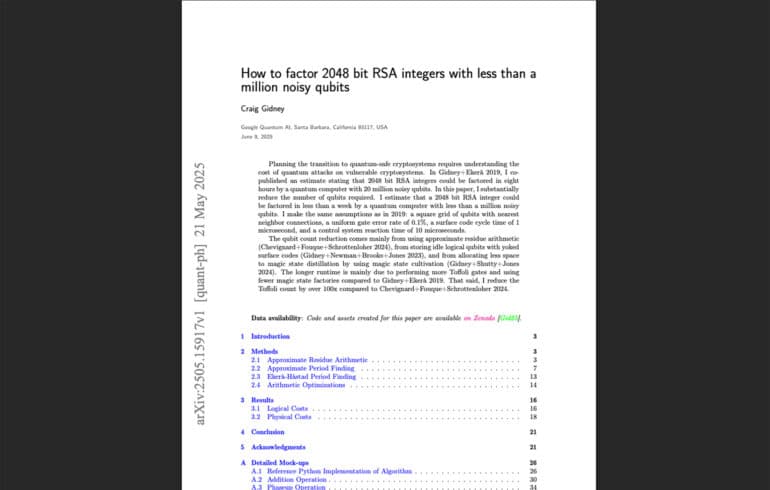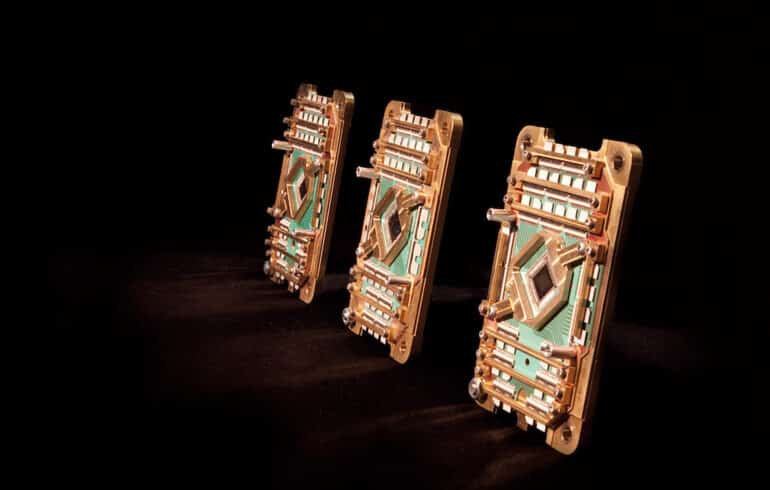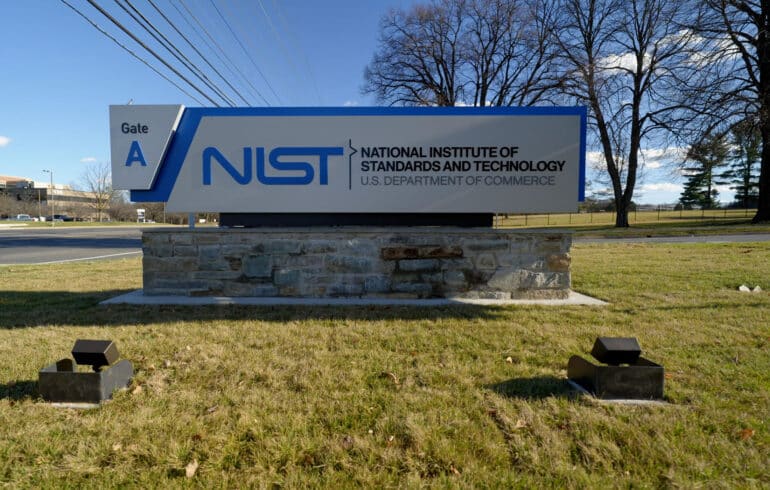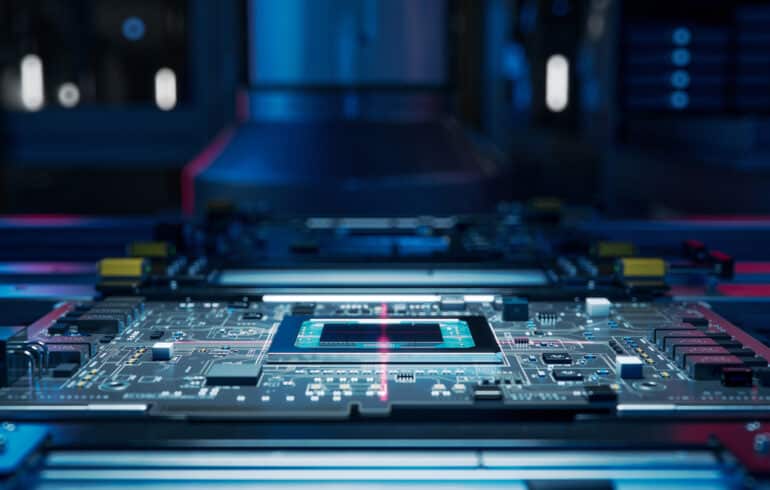IonQ’s 2025 Roadmap: Toward a Cryptographically Relevant Quantum Computer by 2028
IBM’s Roadmap to Large-Scale Fault-Tolerant Quantum Computing (FTQC) by 2029 – News & Analysis
Oxford Achieves 10⁻⁷-Level Qubit Gate Error, Shattering Quantum Fidelity Records
A Reality Check on Forbes’ “20 Real-World Quantum Computing Applications”
Trump’s New Cybersecurity Order – What Changed and Why It Matters – Quantum Perspective
Quantum Breakthrough Slashes Qubit Needs for RSA-2048 Factoring
D-Wave Claims Quantum Supremacy with Quantum Annealing
NIST Picks HQC as New Post-Quantum Encryption Candidate
What Quantum Computers Can Do Better Than Classical Computers
The Rise of Logical Qubits: How Quantum Computers Fight Errors
Quantum Patents and IP Strategy: Safeguarding Innovation in a Crowded Field
Breaking RSA Encryption: Quantum Hype Meets Reality (2022–2025)
Why I Founded Applied Quantum – The First Pure-Play, End-to-End Quantum Consultancy
Quantum Programming: An In-Depth Introduction and Framework Comparison
How Quantum Could Break Through Amdahl’s Law and Computing’s Limits
Marin Ivezic
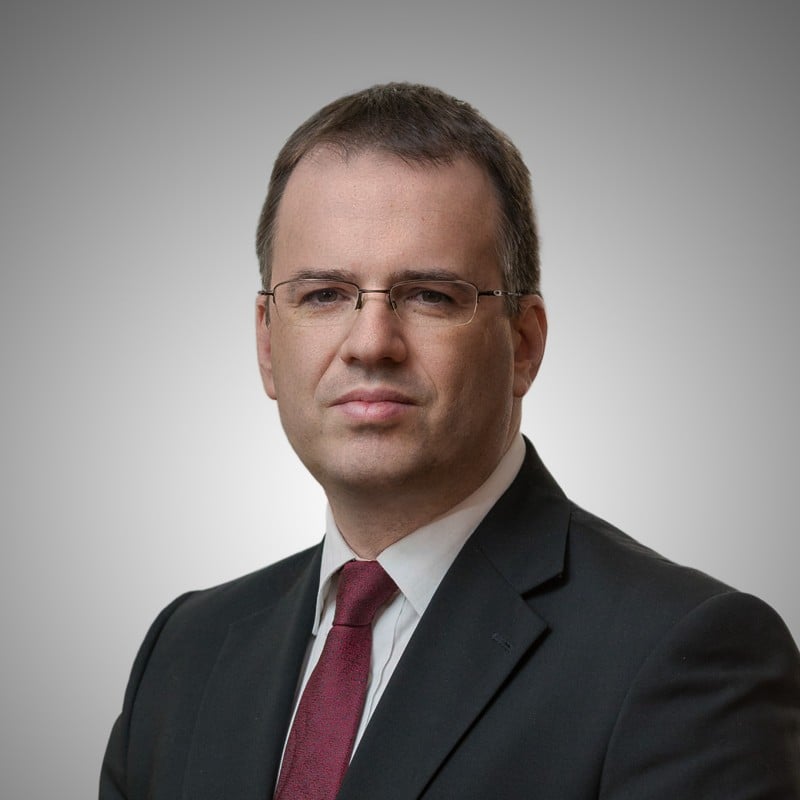
Post-Quantum Cryptography (PQC) and Post-Quantum Security Articles
-
Post-Quantum

How CISOs Can Use Quantum Readiness to Secure Bigger Budgets (and Fix Today’s Problems)
Quantum readiness is not an exercise in science fiction – it’s a very practical program that yields benefits immediately. Regulators are pushing us all in this direction, which means boards are willing to fund it. The journey forces you to…
Read More » -
Post-Quantum

Quantum Readiness / PQC Migration Is The Largest, Most Complex IT/OT Overhaul Ever – So Why Wait?
Preparing for the quantum era is arguably the largest and most complicated digital infrastructure overhaul in history. Yes, far bigger than Y2K, because back in 1999 we didn’t have millions of network-connected “things” to worry about. Yet despite clear warnings…
Read More » -
Post-Quantum
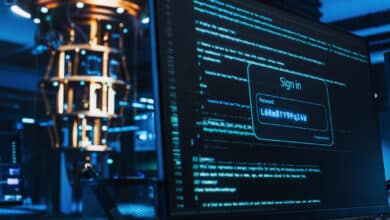
Q-Day Revisited – RSA-2048 Broken by 2030: Detailed Analysis
It’s time to mark a controversial date on the calendar: 2030 is the year RSA-2048 will be broken by a quantum computer. That’s my bold prediction, and I don’t make it lightly. In cybersecurity circles, the countdown to “Q-Day” or…
Read More » -
Post-Quantum

The Enormous Energy Cost of Breaking RSA‑2048 with Quantum Computers
The energy requirements for breaking RSA-2048 with a quantum computer underscore how different the post-quantum threat is from conventional hacking. It’s not just about qubits and math; it’s about megawatts, cooling systems, and power grids. Today, that reality means only…
Read More » -
Post-Quantum
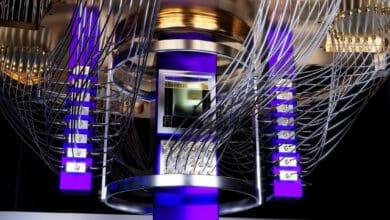
Breaking RSA Encryption: Quantum Hype Meets Reality (2022–2025)
To put it plainly, if you encrypted a message with an RSA-2048 public key today, no one on Earth knows how to factor it with currently available technology, even if they threw every quantum computer and supercomputer we have at…
Read More » -
Post-Quantum

Quantum Key Distribution (QKD) 101: A Guide for Cybersecurity Professionals
Quantum Key Distribution (QKD) is a cutting-edge security technology that leverages quantum physics to enable two parties to share secret encryption keys with unprecedented security guarantees. Unlike classical key exchange methods whose security rests on computational assumptions, QKD’s security is…
Read More »
Quantum Computing Articles
-
Quantum Computing

The Many Faces of Decoherence
Quantum computers hold enormous promise, but they face a stubborn adversary: decoherence. This is the process by which a qubit’s fragile quantum state (its superposition or entanglement) leaks into the environment and effectively "forgets" the information it was carrying. For…
Read More » -
Quantum Computing
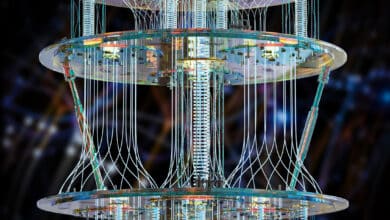
What Quantum Computers Can Do Better Than Classical Computers
Quantum computers already outperform classical computers on a few specialized tasks, and over the coming years that list of tasks will grow. They excel at problems where superposition and entanglement let them explore a vast landscape of possibilities in parallel…
Read More » -
Quantum Computing

The Rise of Logical Qubits: How Quantum Computers Fight Errors
Logical qubits are the linchpin for delivering on the promise of quantum computing. They are the qubits as we wish we had them – long-lived and trustworthy – brought to life by the ingenuity of quantum error correction. By encoding…
Read More » -
Quantum Computing

Why I Founded Applied Quantum – The First Pure-Play, End-to-End Quantum Consultancy
Applied Quantum is a firm that for the first time would be 100% dedicated to quantum technology services – not as a sideline, not as one emerging tech practice among many, but as the entire mission of the company, and…
Read More » -
Quantum Computing

Quantum Programming: An In-Depth Introduction and Framework Comparison
Quantum programming is an emerging discipline that challenges developers to think beyond classical bits and deterministic algorithms. Instead of manipulating binary 0s and 1s, quantum programmers work with qubits that can exist in multiple states at once and harness phenomena…
Read More » -
Quantum Computing
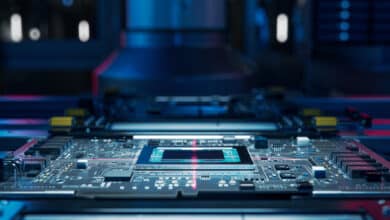
How Quantum Could Break Through Amdahl’s Law and Computing’s Limits
Amdahl’s Law teaches us a humbling lesson about the limits of classical computing: there is always a portion that resists parallel speedup, chaining us to diminishing returns. We’ve coped by clever engineering – making that chain as short as possible…
Read More »
Quantum Computing Modalities / Architectures / Paradigms
-
Quantum Computing Modalities
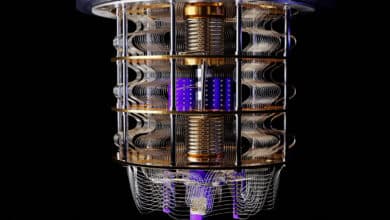
Taxonomy of Quantum Computing: Modalities & Architectures
Over the past few decades, researchers have devised multiple quantum computing paradigms – different models and physical implementations of quantum computers – each addressing these challenges in unique ways. In essence, there is no single “quantum computer” design; instead, there…
Read More » -
Quantum Computing Modalities
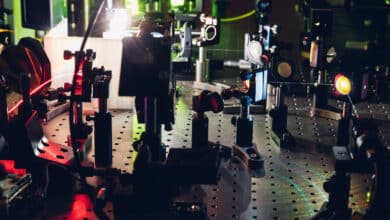
Quantum Computing Modalities: Photonic Cluster-State
Photonic Cluster-State Computing is a form of quantum computing in which information is processed using photons (particles of light) that have been prepared in a highly entangled state known as a cluster state. It falls under the paradigm of measurement-based…
Read More » -
Quantum Computing Modalities

Quantum Computing Modalities: Ion Trap and Neutral Atom MBQC
Ion Trap and Neutral Atom implementations of MBQC leverage two leading “matter-qubit” platforms – trapped ions and ultracold neutral atoms – to realize this model. In a trapped-ion MBQC, a string of ions (charged atoms) is confined and entangled via…
Read More » -
Quantum Computing Modalities

Quantum Computing Modalities: Superconducting Qubits
Superconducting qubits are quantum bits formed by tiny superconducting electric circuits, typically based on the Josephson junction – a sandwich of two superconductors separated by a thin insulator which allows tunneling of Cooper pairs. When cooled to extremely low temperatures…
Read More » -
Quantum Computing Modalities

Quantum Computing Modalities: Holonomic (Geometric Phase) QC
Holonomic quantum computing (also known as geometric quantum computing) is a paradigm that uses geometric phase effects to perform quantum logic operations. In a holonomic gate, the quantum state is manipulated by adiabatically (or sometimes non-adiabatically) moving the system’s parameters…
Read More » -
Quantum Computing Modalities
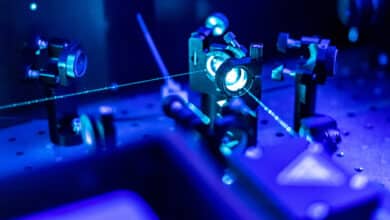
Quantum Computing Modalities: Photonic QC
Photonic quantum computing uses particles of light – photons – as qubits. Typically, the qubit is encoded in some degree of freedom of a single photon, such as its polarization (horizontal = |0⟩, vertical = |1⟩), or its presence/absence in…
Read More »
Quantum Networks Articles
-
Post-Quantum

Quantum Hacking: Cybersecurity of Quantum Systems
While these machines are not yet widespread, it is never too early to consider their cybersecurity. As quantum computing moves into cloud platforms and multi-user environments, attackers will undoubtedly seek ways to exploit them.
Read More » -
Quantum Networks

Quantum Repeaters: The Key to Long-Distance Quantum Comms
Quantum repeaters are specialized devices in quantum communication networks designed to extend the distance over which quantum information (qubits) can be sent without being lost or corrupted. They tackle a fundamental challenge: photons carrying qubits tend to get absorbed or…
Read More » -
Quantum Networks

What is Entanglement-as-a-Service (EaaS)?
Entanglement-as-a-Service is transitioning from a fascinating concept to a nascent reality. Its technical foundations are solidly rooted in quantum physics, its current development is accelerating through global research efforts, and its promise has caught the attention of the telecommunications industry…
Read More » -
Quantum Computing

Quantum Memories in Quantum Networking and Computing
Quantum memories are devices capable of storing quantum states (qubits) in a stable form without collapsing their quantum properties. In essence, a quantum memory is the quantum-mechanical analog of classical computer memory or RAM.
Read More » -
Quantum Networks

Quantum Networks 101: An Intro for Cyber Professionals
Quantum networks are on the cusp of transitioning from theory to practice, following a trajectory not unlike the early development of the classical internet. They hold the promise of fundamentally secure communications and new quantum information capabilities. While challenges remain,…
Read More » -
Quantum Networks

Entanglement Distribution Techniques in Quantum Networks
Quantum entanglement is a unique resource that enables new forms of communication and computation impossible with classical means. Distributing entanglement between distant locations is essential for applications such as quantum key distribution (QKD), quantum teleportation, and connecting quantum computers for…
Read More »
Quantum AI Articles
-
Quantum AI
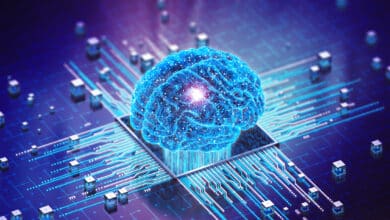
Quantum AI (QAI): Harnessing Quantum Computing for AI (2024 Update)
Quantum Artificial Intelligence (QAI) is an interdisciplinary field that merges the power of quantum computing with the learning capabilities of artificial intelligence (AI). In essence, QAI seeks to use quantum computing—which exploits phenomena like superposition and entanglement—to run AI algorithms…
Read More » -
Quantum AI

Guide to Quantum ML for Data Scientists
Quantum Machine Learning (QML) is an emerging interdisciplinary field that integrates quantum computing with traditional machine learning. The motivation is simple: as data grows and models become more complex, classical computing faces limitations in speed and capacity. Quantum computers leverage…
Read More » -
Post-Quantum

Post-Quantum Cryptography (PQC) Meets Quantum AI (QAI)
Post-Quantum Cryptography (PQC) and Quantum Artificial Intelligence (QAI) are converging fields at the forefront of cybersecurity. PQC aims to develop cryptographic algorithms that can withstand attacks by quantum computers, while QAI explores the use of quantum computing and AI to…
Read More » -
Quantum AI

Full Stack of AI Concerns: Responsible, Safe, Secure AI
As AI continues to evolve and integrate deeper into societal frameworks, the strategies for its governance, alignment, and security must also advance, ensuring that AI enhances human capabilities without undermining human values. This requires a vigilant, adaptive approach that is…
Read More » -
Quantum AI

Marin’s Statement on AI Risks
The rapid development of AI brings both extraordinary potential and unprecedented risks. AI systems are increasingly demonstrating emergent behaviors, and in some cases, are even capable of self-improvement. This advancement, while remarkable, raises critical questions about our ability to control…
Read More » -
Quantum AI

Quantum Computing Modalities: Neuromorphic QC (NQC)
Neuromorphic quantum computing (NQC) is a cutting-edge paradigm that merges two revolutionary approaches to computing: neuromorphic computing and quantum computing. Neuromorphic computing is inspired by the architecture of the human brain – it uses networks of artificial neurons and synapses…
Read More »
-
Quantum Sensing

AI and Quantum Sensing: A Perfect Synergy
AI and quantum sensing complement each other perfectly. Quantum sensors provide the rich, nuanced data about physical reality at its smallest scales; AI provides the means to interpret and act on that data in real time. This synergy is already…
Read More » -
Quantum Sensing
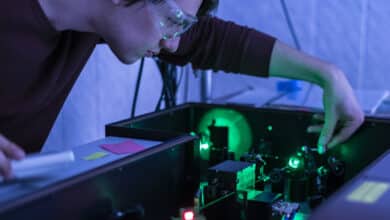
Quantum Sensing – Key Use Cases
At its core, quantum sensing goes beyond classical measurement limits. Traditional sensors – from thermometers to microphones – are ultimately constrained by thermal noise, electronic noise, and even the fundamental “shot noise” of particles. Quantum sensors break past these limits…
Read More » -
Quantum Sensing

Quantum LiDAR vs. Quantum Radar
Quantum radar and quantum LiDAR are no longer science fiction – they are emerging reality, albeit in early stages. They differ in technology and likely timelines: expect to hear more about quantum LiDAR in commercial products soon, while quantum radar…
Read More » -
Quantum Sensing
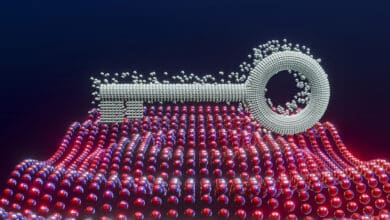
Ethical and Privacy Implications of Quantum Sensing
Quantum sensing sits at a crossroads of promise and peril. On one hand, it embodies the awe-inspiring potential of quantum technology – offering us new eyes and ears to perceive the world in richer detail than ever before. It could…
Read More » -
Quantum Sensing

Quantum Radar: The Next Frontier of Stealth Detection and Beyond
Quantum radar is an emerging technology that applies the mind-bending principles of quantum mechanics to the field of radar sensing. In theory, it promises detection capabilities beyond the reach of conventional radar, potentially piercing the invisibility of stealth aircraft and…
Read More » -
Quantum Sensing
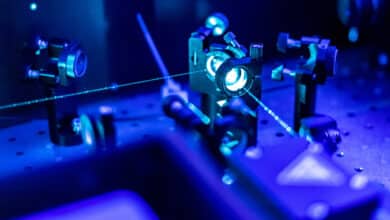
Quantum Sensing – Introduction and Taxonomy
Quantum sensing is poised to augment and in some cases revolutionize how we measure the world. Its unique ability to leverage fundamental quantum phenomena – superposition, entanglement, and more – means it can achieve what was once thought impossible: detecting…
Read More »
-
Quantum Computing

Quantum Technologies and Quantum Computing in South Korea
South Korea’s quantum technology ecosystem has rapidly matured from obscurity into a well-organized force. Backed by a clear national strategy and increasing investments, Korea is making its mark through cutting-edge research at top universities, substantial government support for quantum computing…
Read More » -
Quantum Computing

Quantum Technologies and Quantum Computing in the Middle East
Leaders in the Middle East are talking about quantum algorithms and national quantum computing hubs. And even about Quantum AI. The Middle East is determined not to miss out on the quantum revolution, and that determination is reshaping the tech…
Read More » -
Quantum Computing

Quantum Geopolitics: The Global Race for Quantum Computing
Quantum computing has emerged as a new frontier of great-power competition in the 21st century. Nations around the world view advanced quantum technologies as strategic assets—keys to future economic prowess, military strength, and technological sovereignty. Governments have already poured over…
Read More » -
Quantum Computing
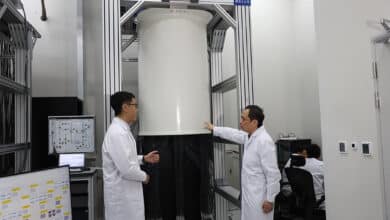
China’s Quantum Computing and Quantum Technology Initiatives
For the world at large, China’s quantum leap is a call to action. It challenges other nations to invest in innovation and pushes the envelope of what’s possible. In an optimistic view, this competition can accelerate discoveries that benefit all…
Read More » -
Quantum Computing

Quantum Technology Initiatives in Singapore and ASEAN
ASEAN’s journey in quantum technology is relatively recent but steadily gaining momentum. Singapore took the lead in the early 2000s – the National Research Foundation began funding quantum research as early as 2002, and by 2007 the government helped establish…
Read More » -
Quantum Computing

Quantum Technologies and Quantum Computing in Russia
Leaders in the Middle East are talking about quantum algorithms and national quantum computing hubs. And even about Quantum AI. The Middle East is determined not to miss out on the quantum revolution, and that determination is reshaping the tech…
Read More »
-
Quantum Commercialization

Global Quantum Innovation Ecosystems: Lessons for TTOs from Around the World
For universities and tech transfer offices (TTOs), understanding global diverse quantum innovation ecosystems is more than a matter of curiosity – it’s a practical guide for positioning academic spin‑offs for success on the world stage. Government investment is a key…
Read More » -
Quantum Commercialization

Building the Quantum Workforce: Talent Challenges and Opportunities
Amid quantum revolution, a bottleneck has emerged: a lack of skilled people. In fact, the quantum talent shortage is now seen as one of the primary hurdles to translating lab discoveries into real-world innovations. One industry expert even warned that…
Read More » -
Quantum Commercialization

Quantum Patents and IP Strategy: Safeguarding Innovation in a Crowded Field
Patents, when aligned with business goals, can attract investment, deter infringement, and provide leverage for collaboration. TTOs and innovators should view IP not just as legal protection but as a core part of innovation strategy – especially in a field…
Read More » -
Quantum Commercialization

Financing the Quantum Leap: Funding Strategies for University Spin‑offs
In the end, funding a quantum leap is about building bridges – between lab and market, between public and private interests, and between today’s prototypes and tomorrow’s transformative industries. Each dollar raised and each partnership forged is like adding a…
Read More » -
Quantum Commercialization

Myths and Realities of Quantum Commercialization
Quantum commercialization is hard; there’s no sugar-coating that. But as we’ve seen, “hard” is not “impossible,” and early difficulty does not mean it’s “too early.” The myths we unpacked – that quantum is always 20 years away, that only giants…
Read More » -
Quantum Commercialization

Bridging the Quantum Lab-to-Market Gap: How External Experts Boost Tech Transfer
The race to commercialize quantum technology is on, and it’s not a sprint by a lone runner; it’s a relay. TTOs carry the baton of discovery from the lab, but to reach the finish line of market impact, they must…
Read More »
